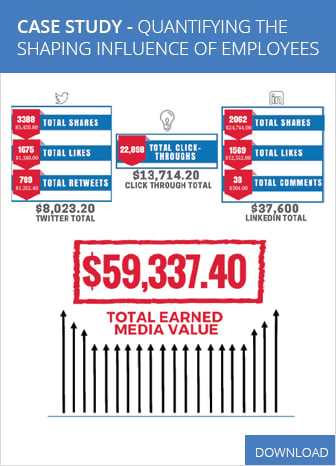Making the Most of Your Small Business Marketing Budget
When it comes to your small business’s marketing efforts, it is important to ensure that whatever you’re spending your money on is worthwhile. Marketing should promote your business’s brand, products and services, without being a detriment to your business’s finances. It is important to consistently evaluate your small business’s marketing budget, so that you’re not over or under spending. Check out these five tips and learn how to utilize your marketing budget efficiently.
1. Overspending – The cardinal sin of budgets is overspending! One of the main reasons small businesses utilize marketing is to bring in more sales, so it is important that your marketing is accomplishing this. By overspending on marketing, you’ll defeat this purpose, and be putting your business’s finances at risk. Ultimately, you want to ensure that you are spending to maximize your business’s return on investment, so keep this in mind.
2. Not saving receipts – If you don’t save all of your business’s receipts and invoices, it may be difficult to track how much money you’re spending. Make a habit of saving all payment documents in a secure, organized place. That way, you’ll never be unsure of how much money your business has to spend on marketing initiatives.
3. Or keeping a precise budget – In addition to saving receipts, make sure that consistently update your business’s budget, so that you’re aware of how much you’re spending and saving. If you keep a precise budget that details how much you can afford to expend on marketing plans, you won’t risk being in the dark about your finances, or spending money you don’t have.
4. Spending money on initiatives that aren’t working – Sometimes you have to be critical of your small business’s marketing projects and assess whether or not they are fruitful. If you know some campaigns aren’t performing well, then it may be time to stop doing them and use those funds elsewhere. It may seem daunting to stop trying certain marketing tactics in exchange for new ones, but if your business isn’t benefiting from them, it may be time to go back to the drawing board.
5. Not investing in necessary marketing tools– On the other hand, there may be certain marketing tools or projects that your business is lacking, that could be worth investing in. While it is great to be prudent and try and cut costs when possible, if your business will be more successful in the long run, it may be helpful to pay for certain additional services.
6. Not assessing what you need money for – While it is important to assess what you are spending money on, it is equally important to examine what your marketing efforts are lacking, that you can’t currently afford. If you don’t have enough money to spend on marketing collateral, consider applying for additional working capital. That way you’ll have cash readily available to use whenever your business wants to create a new marketing campaign!
7. Not updating your mailing list – On a regular basis, you should go through and update your small business’s mailing list. Don’t waste funds sending mail to individuals who have requested to be removed from your mailing list, or sending mail to incorrect addresses. This will help you save money, stay organized and keep your customers happy!
8. Spending money on things you could get for free – There are plenty of free marketing resources available to small businesses! Use Google Analytics to analyze your website’s traffic, create images with Canva instead of spending money on Photoshop and schedule social media posts with Buffer, just to name a few examples. As we previously mentioned, don’t skimp on tools that you really need, but look for free options when possible.
9. Forgetting to test – When it comes to your small business’s marketing initiatives, you should always test a few different options, so that you can see what works best. Decide ahead of time what you are comfortable spending on a test, and don’t allow yourself to go beyond that budget. This way, if it fails, you won’t be at a total loss since you were prepared to lose that amount before you started. If the test is successful, you can slowly invest more money, and alter aspects of the test as needed.
Make your business’s marketing a success, while still responsibly managing your budget! Ensure that you’re able to afford marketing efforts that are going to benefit your business long-term. Ultimately, your marketing strategies should be connecting you with new customers, maintaining your relationships with existing customers and leading to more sales. Follow these tips, and see how your small business’s marketing and budget improve!

Katie Alteri is the content marketing coordinator at Fora Financial, a company that provides working capital solutions to small businesses across the U.S. Fora Financial can also be found on Facebook and Twitter.
Edited by Erik Linask











